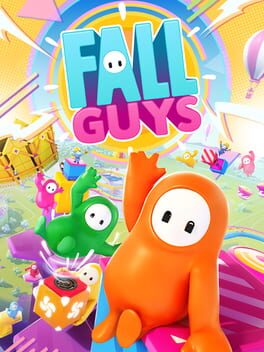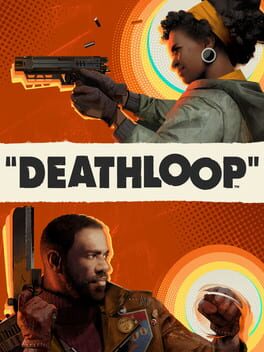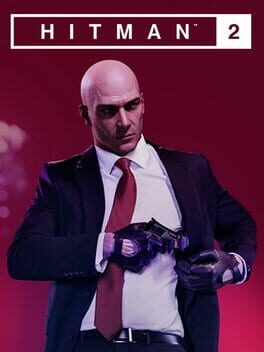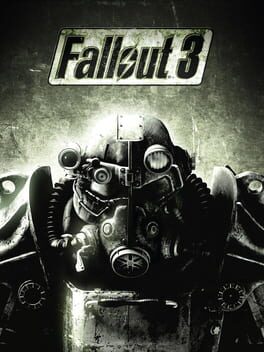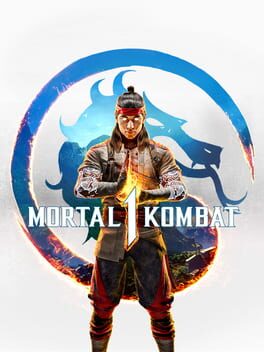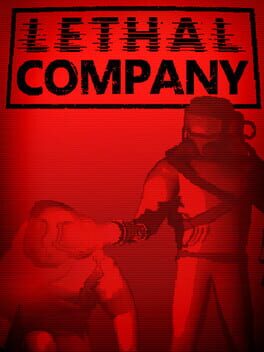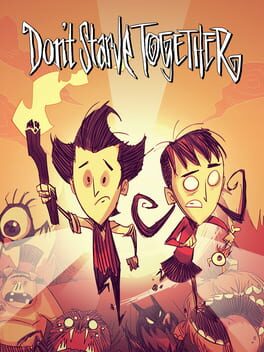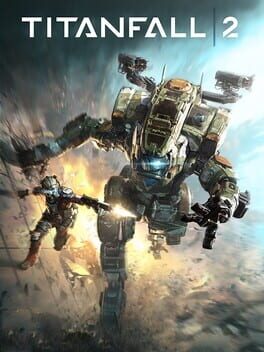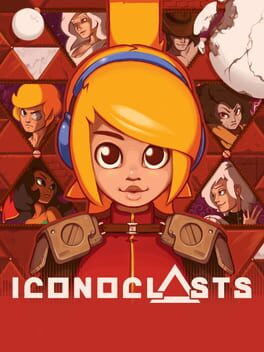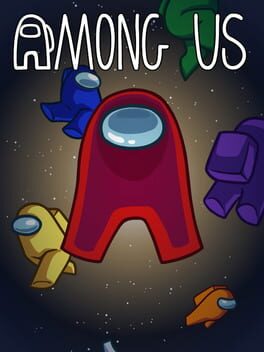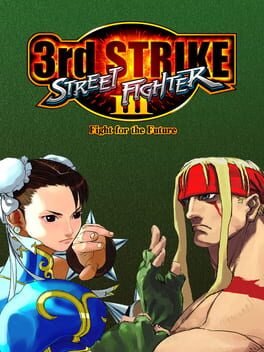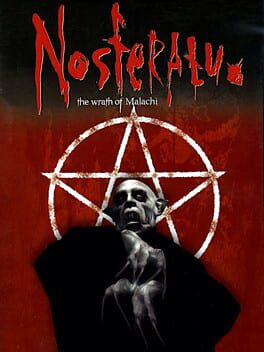HaroKid
2020
2021
Immersive-Sim, Search-Action, or Metroidvania - All are probably apt-enough descriptions for game like this, especially since the studio behind it has so much of their past Dishonored and even Prey DNA blaringly present throughout many of it's avenues - And yet, unexpectedly I find myself being most emotionally recalled to playing and replaying endless Super Mario World levels as I stocked up on extra lives, Yoshis, and powerups, or trying to perfect a run through the robot masters in any given Mega Man title when I play Arkane Lyon's "DEATHLOOP".
(Henceforth) Deathloop is a clever and stylish shooter packed to the rim with gimmicks that may have been better served with brevity. The premise of "Groundhog's Day With Guns" as a video game is certainly tantalizing, and one or both of Arkane's studios are clear picks for the task even prior to Deathloop's actualization. There are moments where the game shines and lives up to this premise, though I'm not sure they quite stuck the landing.
First, the positives - Deathloop's production design from the art direction to the music is intentful, impactful, and fun. The game only really has one song that I can recall outside of the Bond-esque credit sequence, but the dynamic implementation of it and its different contexts makes it exciting and memorable. Weapons are weird, probably nonsensical in mechanical design, and fit right in with the highly accessorized 1960's plastic fashion aesthetic that permeates Blackreef Isle. The between-levels UI pulls from some of the worst offenders in the AAA space as far as functionality goes but stylistically its all cohesive and blends the game's 3D world with the fun 2D animatics after each main objective. Take a drink for every time I draw comparison to another Arkane game, but if the drab smog and dust of the Dishonored franchise tired you out as much as it did me, Deathloop is a breath of fresh air.
What becomes a little more stale a bit too quickly is much of the core gameplay; Despite the game's own insistence that you "Play Your Own Way", I was surprised at how much more restrictive Deathloop's sandbox really is in practice. Each level has alternate routes and secrets like you would expect, and much of the game can be played "out of order", like the aforementioned Mega Man robot masters, but the initial promise of a timeloop puzzle where you manage daylight and have to manipulate your assassination targets is pretty much immediately reduced to there being only a single path forward that the game is not in the slightest shy to tell you about.
In Prey or Dishonored, one conceivably could not play and see all the game had the offer on a single playthrough - There were just too many options that were mutually exclusive. This is vital to that Immersive-Sim experience, and what lends the sheer amount of player agency and emergent moments that practically define the sub-genre. Deathloop's primary gimmick is an interesting experiment in that sense, as it brings that meta-game aspect into the primary experience. For better or for worse, this feels like a move not to ensure that the average player will get to see everything the developers worked on - Though that's probably a nice bonus - but rather a move to force players to feel confident enough to experiment around, while also enabling more players to enjoy this type of game in the "correct way". These goals are admirable, however I think it speaks for itself as to why that doesn't work out as much in practice. At least, not for myself, who was elated by Prey 2017's open-ness and environment of fear and uncertainty, and the much greater amount of pay-off that solving problems in that title brought. For the type of player who is maybe new to the sub-genre or is only interested in watching the credits roll a single time, no matter the game, this probably works out just fine.
One aspect that motivates the loop mechanic and is ultimately counterintuitive to what its goals may be is the game's punishment for failure. In previous titles, the onus is on the player to save and reload how they
I suspect that Arkane Lyon actually achieved more or less 100% what they set out to do. Given the context of not just Arkane, but Bethesda and Zenimax as a whole, I can't help but wonder how many of these decisions were made with the influence of financial pressure. Prior to Deathloop, the first Dishonored game seems to have been the only big hit in Arkane's library, with Prey notably underperforming. Combined with a shift to the ever present GaaS model and hyper aggressive monetization schemes, Zenimax's willingness to shop out timed exclusivity deals for Sony's new console before being bought out by Microsoft shows that they may not have had the cushiest of cash piles. Integrated tech demos for the DualSense gimmicks aside, I don't believe or feel that Arkane's vision was compromised by Sony or higher up Zenimax, but it does feel markedly different in approach.
On a technical level, Deathloop Ideally looks fantastic in motion, but maybe the game's most fatal flaw is the horrendous PC version performance. Even on a contemporary high-end machine, most if not all settings had to be knocked down a few notches to maintain a solid 60 frames per second, but most grievous is the seemingly common issue of stuttering and freezing found, regardless of what your video settings are at. This effect usually subsides after you've spent a minute or two in a newly loaded map, but will often rear its ugly head when transitioning between indoor and outdoor areas.
The TL:DR - Deathloop is a fun, but ultimately shallow ride that gives the player all the answers, never really lets the player screw up and snowball into interesting scenarios, and somehow paradoxically forces you to “Play Your Way” instead of just… Letting you play? Probably a whole lot more approachable, but not nearly as satisfying or replayable as the rest of the studio's games.
(Henceforth) Deathloop is a clever and stylish shooter packed to the rim with gimmicks that may have been better served with brevity. The premise of "Groundhog's Day With Guns" as a video game is certainly tantalizing, and one or both of Arkane's studios are clear picks for the task even prior to Deathloop's actualization. There are moments where the game shines and lives up to this premise, though I'm not sure they quite stuck the landing.
First, the positives - Deathloop's production design from the art direction to the music is intentful, impactful, and fun. The game only really has one song that I can recall outside of the Bond-esque credit sequence, but the dynamic implementation of it and its different contexts makes it exciting and memorable. Weapons are weird, probably nonsensical in mechanical design, and fit right in with the highly accessorized 1960's plastic fashion aesthetic that permeates Blackreef Isle. The between-levels UI pulls from some of the worst offenders in the AAA space as far as functionality goes but stylistically its all cohesive and blends the game's 3D world with the fun 2D animatics after each main objective. Take a drink for every time I draw comparison to another Arkane game, but if the drab smog and dust of the Dishonored franchise tired you out as much as it did me, Deathloop is a breath of fresh air.
What becomes a little more stale a bit too quickly is much of the core gameplay; Despite the game's own insistence that you "Play Your Own Way", I was surprised at how much more restrictive Deathloop's sandbox really is in practice. Each level has alternate routes and secrets like you would expect, and much of the game can be played "out of order", like the aforementioned Mega Man robot masters, but the initial promise of a timeloop puzzle where you manage daylight and have to manipulate your assassination targets is pretty much immediately reduced to there being only a single path forward that the game is not in the slightest shy to tell you about.
In Prey or Dishonored, one conceivably could not play and see all the game had the offer on a single playthrough - There were just too many options that were mutually exclusive. This is vital to that Immersive-Sim experience, and what lends the sheer amount of player agency and emergent moments that practically define the sub-genre. Deathloop's primary gimmick is an interesting experiment in that sense, as it brings that meta-game aspect into the primary experience. For better or for worse, this feels like a move not to ensure that the average player will get to see everything the developers worked on - Though that's probably a nice bonus - but rather a move to force players to feel confident enough to experiment around, while also enabling more players to enjoy this type of game in the "correct way". These goals are admirable, however I think it speaks for itself as to why that doesn't work out as much in practice. At least, not for myself, who was elated by Prey 2017's open-ness and environment of fear and uncertainty, and the much greater amount of pay-off that solving problems in that title brought. For the type of player who is maybe new to the sub-genre or is only interested in watching the credits roll a single time, no matter the game, this probably works out just fine.
One aspect that motivates the loop mechanic and is ultimately counterintuitive to what its goals may be is the game's punishment for failure. In previous titles, the onus is on the player to save and reload how they
I suspect that Arkane Lyon actually achieved more or less 100% what they set out to do. Given the context of not just Arkane, but Bethesda and Zenimax as a whole, I can't help but wonder how many of these decisions were made with the influence of financial pressure. Prior to Deathloop, the first Dishonored game seems to have been the only big hit in Arkane's library, with Prey notably underperforming. Combined with a shift to the ever present GaaS model and hyper aggressive monetization schemes, Zenimax's willingness to shop out timed exclusivity deals for Sony's new console before being bought out by Microsoft shows that they may not have had the cushiest of cash piles. Integrated tech demos for the DualSense gimmicks aside, I don't believe or feel that Arkane's vision was compromised by Sony or higher up Zenimax, but it does feel markedly different in approach.
On a technical level, Deathloop Ideally looks fantastic in motion, but maybe the game's most fatal flaw is the horrendous PC version performance. Even on a contemporary high-end machine, most if not all settings had to be knocked down a few notches to maintain a solid 60 frames per second, but most grievous is the seemingly common issue of stuttering and freezing found, regardless of what your video settings are at. This effect usually subsides after you've spent a minute or two in a newly loaded map, but will often rear its ugly head when transitioning between indoor and outdoor areas.
The TL:DR - Deathloop is a fun, but ultimately shallow ride that gives the player all the answers, never really lets the player screw up and snowball into interesting scenarios, and somehow paradoxically forces you to “Play Your Way” instead of just… Letting you play? Probably a whole lot more approachable, but not nearly as satisfying or replayable as the rest of the studio's games.
2018
Not every level is a hit, but the ones that are offer a substantial and impressive upgrade over even the best from the previous title. The scale is upped only in the areas where it matters most, and each level is meticulously designed and packed with satisfyingly goofy stories while allowing even more sandbox opportunities. Killing rich people has never felt so good.
2023
There are like 2 things about this game that I didn't enjoy, and the rest of the things that I did enjoy I adored. Breaking down how very strongly I feel about every aspect of this game would be a lengthy endeavor that I know I would not be able to satisfyingly land with a real review, so for now, I won't. This game is truly excellent, end of story.
2008
Truth be told, I was kind of astonished when the credits rolled. "That's it?"
Fallout 3 feels like an earnest attempt at the impossible task of not only revitalizing the Fallout franchise but doing so for a much bigger audience on console in the form of an FPS action game; It practically never sticks the landing, but there might be just enough charm and just enough excuses that it isn't the worst game in the world.
Is it janky? Sure. Is it buggy? Definitely. Is it ugly? It may be the ugliest game I've ever played. But, is Fallout 3 nonetheless a good video game?
Also, no.
Yet there's something I either admire or feel sympathetic about when it comes to Fallout 3. The game fails to propose any interesting ideas, maintain any convincing atmosphere for very long, or pose any riveting moral dilemmas, but the worst emotion that the game stirs within me is a meager "Oh ok I guess". There are enough novel moments and characters that while I'm not particularly emotionally invested in anything, I'm stimulated enough to just keep on going anyway. Call that the Bethesda magic, I guess.
Breaking out Fawkes, exploring all 12 square feet of the black-and-white CRT VR world, and yes, even the intro where you grow up in the vault all have a novelty factor where it feels like there is an effort to provide more cinematic storytelling in lieu of, well, having good writing or quest design. Often in conversations with NPCs I will have exhausted every dialogue option without ever managing to be allowed to ask the questions I as the player actually want or need to know - Annoying from the perspective of trying to become immersed in a roleplaying game, but also functionally a roadblock fairly frequently when the in-game quest log and map is so poor and scarce on anything useful.
I also appreciate Bethesda's efforts to translate some of the game mechanics into this new 3D space - Something they could have just as easily avoided altogether. VATs, like everything else in the game, suffers from a lack of polish, but is a cool addition both in its own right and as a way to bridge the gap between the Real-Time-With-Pause action points system of old with the rinky dink shooting of 2008 gamebryo Bethesda. While not every perk is created equal in power nor intrigue, I found myself always looking forward to which new ones I had access to while leveling up. Many returning in-universe brands and items from Fallout 1 and 2 and their 1950's americana McDonalds-ization also help with making this game world cohesive with those previous titles as well as offering a solid sense of visual identity in an otherwise hyper-muddy game, and is even helped along with new additions like the various oldies radio stations that really sell the setting.
All of this to say that the word I keep coming back to when thinking about all the things Fallout 3 does right is "Novelty". In 2008 for the journeyman cRPG fan, maybe there wasn't a whole lot of novelty to be found - There certainly is nothing to be found in Fallout 3 that the original game doesn't already do better after all - but Bethesda placed all of the correct bets as to which columns really mattered for a new Fallout game for a console audience coming off of Oblivion - Surface level aesthetics, dialogue writing that, let's face it, was being graded on the curve of "Xbox 360 Video Game in 2008", and an extremely narrowed story scope that doesn't ask or even want a whole lot from the player. Maybe it is piggy backing off of all the successes of Interplay's time with the franchise, and maybe the cost of this approach is an utterly unremarkable game when removed from the context of its own history.
So, yeah. That really was it. The sheer success of what feels like a product that could never truly find its footing or purpose for existing is a testament to the power of novelty. For Fallout 3? I can give it a pass. Frankly, I enjoyed this game more than I ever did Fallout 2, even as someone who became enamored with the first game. I think for the rest of Bethesda's tenure with the franchise, I am inclined to be far less forgiving of meandering about without purpose while parading around the corpse of a once excellent game.
Fallout 3 feels like an earnest attempt at the impossible task of not only revitalizing the Fallout franchise but doing so for a much bigger audience on console in the form of an FPS action game; It practically never sticks the landing, but there might be just enough charm and just enough excuses that it isn't the worst game in the world.
Is it janky? Sure. Is it buggy? Definitely. Is it ugly? It may be the ugliest game I've ever played. But, is Fallout 3 nonetheless a good video game?
Also, no.
Yet there's something I either admire or feel sympathetic about when it comes to Fallout 3. The game fails to propose any interesting ideas, maintain any convincing atmosphere for very long, or pose any riveting moral dilemmas, but the worst emotion that the game stirs within me is a meager "Oh ok I guess". There are enough novel moments and characters that while I'm not particularly emotionally invested in anything, I'm stimulated enough to just keep on going anyway. Call that the Bethesda magic, I guess.
Breaking out Fawkes, exploring all 12 square feet of the black-and-white CRT VR world, and yes, even the intro where you grow up in the vault all have a novelty factor where it feels like there is an effort to provide more cinematic storytelling in lieu of, well, having good writing or quest design. Often in conversations with NPCs I will have exhausted every dialogue option without ever managing to be allowed to ask the questions I as the player actually want or need to know - Annoying from the perspective of trying to become immersed in a roleplaying game, but also functionally a roadblock fairly frequently when the in-game quest log and map is so poor and scarce on anything useful.
I also appreciate Bethesda's efforts to translate some of the game mechanics into this new 3D space - Something they could have just as easily avoided altogether. VATs, like everything else in the game, suffers from a lack of polish, but is a cool addition both in its own right and as a way to bridge the gap between the Real-Time-With-Pause action points system of old with the rinky dink shooting of 2008 gamebryo Bethesda. While not every perk is created equal in power nor intrigue, I found myself always looking forward to which new ones I had access to while leveling up. Many returning in-universe brands and items from Fallout 1 and 2 and their 1950's americana McDonalds-ization also help with making this game world cohesive with those previous titles as well as offering a solid sense of visual identity in an otherwise hyper-muddy game, and is even helped along with new additions like the various oldies radio stations that really sell the setting.
All of this to say that the word I keep coming back to when thinking about all the things Fallout 3 does right is "Novelty". In 2008 for the journeyman cRPG fan, maybe there wasn't a whole lot of novelty to be found - There certainly is nothing to be found in Fallout 3 that the original game doesn't already do better after all - but Bethesda placed all of the correct bets as to which columns really mattered for a new Fallout game for a console audience coming off of Oblivion - Surface level aesthetics, dialogue writing that, let's face it, was being graded on the curve of "Xbox 360 Video Game in 2008", and an extremely narrowed story scope that doesn't ask or even want a whole lot from the player. Maybe it is piggy backing off of all the successes of Interplay's time with the franchise, and maybe the cost of this approach is an utterly unremarkable game when removed from the context of its own history.
So, yeah. That really was it. The sheer success of what feels like a product that could never truly find its footing or purpose for existing is a testament to the power of novelty. For Fallout 3? I can give it a pass. Frankly, I enjoyed this game more than I ever did Fallout 2, even as someone who became enamored with the first game. I think for the rest of Bethesda's tenure with the franchise, I am inclined to be far less forgiving of meandering about without purpose while parading around the corpse of a once excellent game.
2023
Like with most games of excessive scope and scale there are probably a number of things you could nitpick or criticize about Starfield, but none of those really matter, and it is a waste of time to ponder on them.
Would Starfield be better had there been 100, 50, or 10 planets instead of 1000+? No.
Would seamless loading screens masked by intra-atmospheric space travel make Starfield an instant 10 out of 10? I seriously doubt it.
The want for space aliens a la Mass Effect is uninspired and refusing to engage with the game on the same level as wishing for a burger at a Chinese restaurant, and while ground vehicles inspired by their implementation in something like Halo would be nice, like everything else that Starfield does competently, it would be squandered thanks to Bethesda's enduring ability to design a game that ultimately feels utterly pointless.
Paradoxically, Bethesda Game Studios has mastered the art of creating huge simulation sandbox playgrounds where you can do pretty much everything, but you can't do anything that matters.
Systems-wise, you are granted a fair amount of agency, I guess. Like, on a technical level. But despite the hundreds of characters and a volume of voice acted dialogue larger than the studio's last 2 major efforts combined, Starfield manages to be a roleplaying game in which you are not allowed to roleplay. There are rarely any big decisions to make, and when you do make a decision, rarely does it have big consequences.
Starfield pales in comparison in this department compared to the aforementioned Mass Effect, as well as The Outer Worlds, or even something like Arkane's Prey: There's no build up to looming forks in which you can shape the destiny of your player character or other NPCs, there's a drought of alternate quest win conditions or exclusive quests that lock you in to their paths, you can't deal with major NPCs by blasting the problem away and collecting a key item in their place, and aside from a generic type of fetch quest, there are no time gated decisions that ask the player to take some responsibility for themselves or the world around them.
No, even in this new dangerous frontier of space pioneers, the most common form of real moment to moment player agency is on occasion being able to pass dialogue checks with NPCs to persuade them instead of having to fight them - A system so frivolous and unincorporated with anything else happening in the game that you can cheese the system by constantly reloading a save until they decide they agree with you this time based off of a die roll - or choosing to sneak around an abandoned factory instead of charging in gung ho, guns blazing.
I feel like I'm not asking for a lot here; Or at least, what I am asking for at the bare minimum shouldn't be limited by the scope of the rest of the game. I don't believe that less planets or less polished gun mechanics or scrapping the base building would suddenly imbue this game with the personality and venue for player expression that it sorely needs.
If anything, customizing guns, having functionally endless planets to choose from to build a base on, and especially the ship customization feature are the things that allow for the most player expression in Starfield, with the last of those being my main motivation for progressing through the game, and remains my favorite aspect of it.
Something as basic as being locked out of factions for mingling with others, or some scale of "Good Guy Points/Bad Guy Points" would have gone a long way here. Giving the player multiple dialogue options with different tones and personalities even, would have gone a long way here. I wouldn't even ask that they always have different responses, so long as there's at least a convincing facade of enabling player expression at play.
Starfield is an unreasonably huge game that actually manages to pull off what it says on the tin. The gun fighting feels pretty good in a noticeable step-up from Fallout 4, the "NASApunk" visual language despite sounding antithetical to either NASA or punk is very cool and effective. You can fly ships, build a base, blah blah blah.
Although it could easily have been worse, there's no point in rewarding an accolade for surface level competency. And I really do mean surface level. None of these systems have that much depth or complexity to them, which is perfectly fine. Unfortunately, there is no real external motivation for engaging with these systems to make up for it.
There's just no reason to give a damn about Starfield.
Would Starfield be better had there been 100, 50, or 10 planets instead of 1000+? No.
Would seamless loading screens masked by intra-atmospheric space travel make Starfield an instant 10 out of 10? I seriously doubt it.
The want for space aliens a la Mass Effect is uninspired and refusing to engage with the game on the same level as wishing for a burger at a Chinese restaurant, and while ground vehicles inspired by their implementation in something like Halo would be nice, like everything else that Starfield does competently, it would be squandered thanks to Bethesda's enduring ability to design a game that ultimately feels utterly pointless.
Paradoxically, Bethesda Game Studios has mastered the art of creating huge simulation sandbox playgrounds where you can do pretty much everything, but you can't do anything that matters.
Systems-wise, you are granted a fair amount of agency, I guess. Like, on a technical level. But despite the hundreds of characters and a volume of voice acted dialogue larger than the studio's last 2 major efforts combined, Starfield manages to be a roleplaying game in which you are not allowed to roleplay. There are rarely any big decisions to make, and when you do make a decision, rarely does it have big consequences.
Starfield pales in comparison in this department compared to the aforementioned Mass Effect, as well as The Outer Worlds, or even something like Arkane's Prey: There's no build up to looming forks in which you can shape the destiny of your player character or other NPCs, there's a drought of alternate quest win conditions or exclusive quests that lock you in to their paths, you can't deal with major NPCs by blasting the problem away and collecting a key item in their place, and aside from a generic type of fetch quest, there are no time gated decisions that ask the player to take some responsibility for themselves or the world around them.
No, even in this new dangerous frontier of space pioneers, the most common form of real moment to moment player agency is on occasion being able to pass dialogue checks with NPCs to persuade them instead of having to fight them - A system so frivolous and unincorporated with anything else happening in the game that you can cheese the system by constantly reloading a save until they decide they agree with you this time based off of a die roll - or choosing to sneak around an abandoned factory instead of charging in gung ho, guns blazing.
I feel like I'm not asking for a lot here; Or at least, what I am asking for at the bare minimum shouldn't be limited by the scope of the rest of the game. I don't believe that less planets or less polished gun mechanics or scrapping the base building would suddenly imbue this game with the personality and venue for player expression that it sorely needs.
If anything, customizing guns, having functionally endless planets to choose from to build a base on, and especially the ship customization feature are the things that allow for the most player expression in Starfield, with the last of those being my main motivation for progressing through the game, and remains my favorite aspect of it.
Something as basic as being locked out of factions for mingling with others, or some scale of "Good Guy Points/Bad Guy Points" would have gone a long way here. Giving the player multiple dialogue options with different tones and personalities even, would have gone a long way here. I wouldn't even ask that they always have different responses, so long as there's at least a convincing facade of enabling player expression at play.
Starfield is an unreasonably huge game that actually manages to pull off what it says on the tin. The gun fighting feels pretty good in a noticeable step-up from Fallout 4, the "NASApunk" visual language despite sounding antithetical to either NASA or punk is very cool and effective. You can fly ships, build a base, blah blah blah.
Although it could easily have been worse, there's no point in rewarding an accolade for surface level competency. And I really do mean surface level. None of these systems have that much depth or complexity to them, which is perfectly fine. Unfortunately, there is no real external motivation for engaging with these systems to make up for it.
There's just no reason to give a damn about Starfield.
2023
Mechanically, Mortal Kombat 1 is the most satisfying feeling entry from Netherrealm Studios in some time. I lack the skill, experience, or vocabulary to really articulate it or fully appreciate it, but it just feels good. While playing the NRS titles, I've never really been privy to any of the animation issues that other seem to have, instead only being able to really understand the gripes people have when watching back footage. For most of the cast of characters, it's been even more difficult for me to spot the "jank" present in NRS's animation style - Except for Johnny Cage. Holy shit do Johnny Cage's animations look ridiculous.
But whatever, I don't really play these games for their refined combat. I've pretty much bought every NRS title since 2011's franchise reboot on day 1 for their substantial story modes. Going into Mortal Kombat 1, I was very excited at what seemed like a real refresh for the franchise in many of the characters' designs and origins. I was particularly stoked that for once in these games, all of these experts in various Asian martial arts were themselves depicted as Asian martial artists. I was also stoked at the lack of any of those military special forces guns, grenades, and drones bullshit.
The story mode starts off fairly promising with this return to form about being a game steeped in martial arts and mysticism film pastiches, but this quickly grinds to a screeching halt and devolves into modern day superhero movie junk. Despite being marketed as a fresh start, Mortal Kombat 1 seems intent on not being able to let go from the timeline fuckery story elements from Mortal Kombat 11. Not only does this game do it worse than 2019's entry, but it also serves to diminish any unique identity either game has.
I'm not asking for anything Shakespearean in quality here and fully expect Mortal Kombat to always essentially be about smashing ninja toys together, but it feels like the developers just lost focus or lost confidence in their own storytelling and resorted to essentially making a shitty Boss Logic caliber CG movie.
If I truly had my unreasonable, zero-dollar making way, a story revolving around the first Mortal Kombat tournament, Goro, and The Great Kung Lao in addition to a cast of mostly new faces would have been the most compelling path this latest time reset could have led us. Unrealistic, for sure, but man to swing so hard the other way was a big disappointment.
Oh well, here's hoping next time around is better.
But whatever, I don't really play these games for their refined combat. I've pretty much bought every NRS title since 2011's franchise reboot on day 1 for their substantial story modes. Going into Mortal Kombat 1, I was very excited at what seemed like a real refresh for the franchise in many of the characters' designs and origins. I was particularly stoked that for once in these games, all of these experts in various Asian martial arts were themselves depicted as Asian martial artists. I was also stoked at the lack of any of those military special forces guns, grenades, and drones bullshit.
The story mode starts off fairly promising with this return to form about being a game steeped in martial arts and mysticism film pastiches, but this quickly grinds to a screeching halt and devolves into modern day superhero movie junk. Despite being marketed as a fresh start, Mortal Kombat 1 seems intent on not being able to let go from the timeline fuckery story elements from Mortal Kombat 11. Not only does this game do it worse than 2019's entry, but it also serves to diminish any unique identity either game has.
I'm not asking for anything Shakespearean in quality here and fully expect Mortal Kombat to always essentially be about smashing ninja toys together, but it feels like the developers just lost focus or lost confidence in their own storytelling and resorted to essentially making a shitty Boss Logic caliber CG movie.
If I truly had my unreasonable, zero-dollar making way, a story revolving around the first Mortal Kombat tournament, Goro, and The Great Kung Lao in addition to a cast of mostly new faces would have been the most compelling path this latest time reset could have led us. Unrealistic, for sure, but man to swing so hard the other way was a big disappointment.
Oh well, here's hoping next time around is better.
2023
A more successful implementation of proximity voice chat has not existed before, and may not exist for some time, if ever.
Lethal Company's easy to understand and instantly clever gameplay loops are so strong and addictive that it carries a perfectly satisfying but small amount of bespoke assets and mechanics on its back without breaking a sweat with nearly 60 hours of game time spread across a little over a month logged in my personal steam library, with new features still being developed and added in concurrent to this review.
Lethal Company's easy to understand and instantly clever gameplay loops are so strong and addictive that it carries a perfectly satisfying but small amount of bespoke assets and mechanics on its back without breaking a sweat with nearly 60 hours of game time spread across a little over a month logged in my personal steam library, with new features still being developed and added in concurrent to this review.
2016
Short but sweet, Titanfall 2's story is just interesting enough to keep you engaged through it's massively more thrilling sandbox and mission design.
The multiplayer is beyond addictive with it's latest Steam release, and I found myself spending hours into the game's opening time trial mode attempting to master the movement.
The multiplayer is beyond addictive with it's latest Steam release, and I found myself spending hours into the game's opening time trial mode attempting to master the movement.
2018
2018
what a funny lil game :^)
the atmosphere and aesthetic is real stank and cool, and the voice acting is wonderful
da game is a little jank but surprisingly still playable. It's a short game which i like but it could stand to be a little shorter! lots of padding it feels like, could be a good speedrun
i also did get jumpscared by the funny monsters on more than one occasion, so bonus points for the scary factor
the atmosphere and aesthetic is real stank and cool, and the voice acting is wonderful
da game is a little jank but surprisingly still playable. It's a short game which i like but it could stand to be a little shorter! lots of padding it feels like, could be a good speedrun
i also did get jumpscared by the funny monsters on more than one occasion, so bonus points for the scary factor
2007
